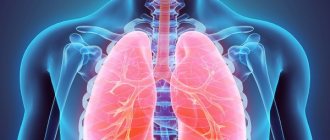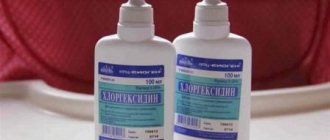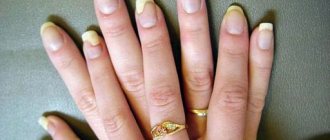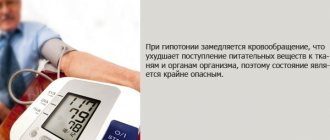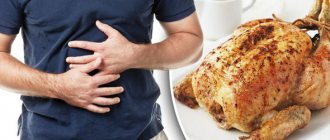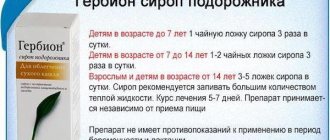What is a cough?
Cough
occurs due to involuntary forced exhalations, which are due to the fact that there is irritation on the mucous membrane of the respiratory tract. Anything can cause a cough, from a speck of dust accidentally flying into the throat to serious illnesses: influenza, bronchitis, pneumonia, etc. Coughing is also caused by small foreign bodies caught in the throat. With the help of coughing, the child is freed from them.
In recent years, the number of cases of lung cancer and tuberculosis has increased. Hemoptysis syndrome, which often complicates the course of lung cancer and tuberculosis, also requires the prescription of drugs that soothe and suppress cough. Antitussive drugs are also necessary for patients with functional disorders in the respiratory organs, tracheal dyskinesia and reflux disease. Thus, the range of diseases for which effective antitussives are needed is very wide.
A cough begins when there is irritation of the mucous membrane of the larynx, trachea and bronchi. That is why, in order to get rid of a cough (not the cause of the cough, but only the spasm itself), you just need to relieve the irritation, or at least reduce it.
Video: chronic cough - what is its cause and how to overcome it?
What to do during a coughing attack?
Warm drinks - milk or tea - will help relieve a coughing attack.
The first thing to do is to take a vertical position - sit down or stand up; if a small child or a bedridden patient is suffering from a cough - raise the head of the bed. It is advisable to lean on something with your hands (orthopnea position with a fixed shoulder girdle).
This position connects auxiliary muscles to the act of breathing, making inhalation and exhalation easier. It is important that the patient has access to fresh air - it is necessary to open the window and unfasten any obstructive clothing. Objects that could cause the patient to hit or get caught should be removed to avoid injury.
Further actions depend on whether the patient and his relatives know about the possible causes of a coughing attack, and how easy it is to cope with them at home. If the cause of the cough is a foreign body, then the patient needs to bend over so that the head is below the waist - in this position, the foreign body will come out faster under the influence of gravity. The Heimlich maneuver can help with this - sharp pressure on the area just above the navel. For infants, turning them upside down is acceptable. Do not remove the foreign body with your fingers or improvised tools.
If the cause is a disease for which the patient is being treated, then it is necessary to take the medications prescribed by the doctor. You cannot take any other medications.
Causes of cough
Cough is a reflex defense reaction of the body, manifested by jerky exhalations and ensuring the removal of a foreign body or phlegm from the respiratory tract. Cough can be a symptom of many diseases, so its correct diagnosis is of great importance. Coughing allows the bronchi to clear, so the person does not choke. Therefore, we can say that cough performs a vital function in the body.
Cough can be divided into several types, depending on the causes and symptoms. Most often it is caused by two main reasons - foreign bodies and diseases. A sudden cough usually indicates that a foreign body has entered the respiratory tract. An acute and persistent cough most often indicates a respiratory tract infection, and it usually lasts for at least two weeks. If the cough lasts more than two months, it is called chronic.
Chronic cough is often observed in bronchial asthma. In severe asthma, patients are bothered by a prolonged cough, especially at night and after any physical activity. Chronic cough can also be caused by a variety of irritants, such as cigarette smoke or chemicals that a person regularly inhales. A barking cough (especially in a small child) should be alarming, as it can be caused by swelling of the larynx, and the result can be suffocation.
Cough occurs with the following diseases:
- Pharyngitis;
- Asthma;
- ARVI;
- Allergy;
- Heart failure;
- Pleurisy;
- Pneumonia;
- Whooping cough;
- Laryngitis
In general, cough is not always a symptom of illness. It can be caused by the following factors:
- Inflammation of the airways or areolas due to diseases such as laryngitis, tracheitis, bronchitis, pneumonia or lung abscess.
- Chemical irritation, that is, inhalation of gases with a strong odor. An example is cigarette smoke.
- Mechanical irritation, that is, inhalation of dust, increased tone of the bronchi and disruption of their patency.
- Thermal irritation, that is, inhaling air that is too hot or too cold.
When a foreign body gets into the respiratory tract or smoke is inhaled, the cough is usually one-time. In smokers or with bronchial asthma, a paroxysmal cough is observed. Viral infections cause an acute cough, and in case of heart pathologies, chronic bronchitis and other serious diseases, the cough is observed in a chronic form.
A very obvious cause of chronic cough is smoking, especially if a person has been smoking for many years. Cigarette smoke causes excess mucus to accumulate in the lungs, which may go unnoticed. Therefore, people who smoke often wake up in the morning with a wet cough that stops after a few puffs. If you absolutely need a cigarette in the morning, this is a characteristic sign that there are already serious problems in the functioning of the respiratory system.
With emphysema or a disease such as chronic bronchitis, there is a constant painful cough. In this case, the lumen of the bronchi decreases, resulting in shortness of breath and difficulty breathing. Sometimes a cough can be a sign of very serious illnesses, such as cancer or a benign lung tumor.
Causes and characteristic signs of cough
More often, cough occurs due to inflammation of the bronchi, bronchioles and irritation of the receptors located in them. It can also be a consequence of inflammation of the larynx, pharynx and tonsils. These processes are observed in respiratory diseases of viral, less often - bacterial etiology. In some cases, they can develop as a result of chemical or physical influences on the body from the outside.
The etiological factors in the development of the causes of dry cough are:
- pathogenic microflora: viruses, bacteria and fungi;
- thermal and chemical burns of the respiratory tract;
- exposure to toxic substances, smoke, including smoking;
- inhalation of allergens;
- pressure on the bronchi and trachea from enlarged lymph nodes, thyroid gland, etc.;
- ingestion of small foreign bodies when inhaled with air, dust containing microscopic dust mites.
The immediate causes of a dry cough in an adult are diseases and conditions in which this reflex reaction of the body occurs. We will dwell on them in more detail.
Tracheitis
Inflammation of the tracheal mucosa. Caused by viruses, streptococcal or staphylococcal infection. This is facilitated by exposure to cold and polluted air. It is characterized by attacks of dry cough, especially in the morning, and a temperature reaction. Often combined with pharyngitis (inflammation of the pharynx) and bronchitis. Over time, a dry cough gives way to a wet one.
Laryngitis
Inflammation of the larynx, the constant companion of which is a painful, convulsive cough. Along with this symptom, voice disturbances, so-called aphonia, severe pain when swallowing, and fever are observed.
Pneumonia
Pneumonia. It is characterized by inflammation of the “breathing sacs” - the alveoli. The cough comes first: first dry, then with sputum. Pain in the chest area is not typical, although it is possible that the patient will complain of pain when breathing. High body temperature and shortness of breath are also characteristic of pneumonia. They include a large group of diseases of various etiologies. Symptoms are varied, and the patient’s condition can be mild, moderate, or severe. Coughing can be strong and intrusive. The sputum is scanty and difficult to cough up. In some cases of pneumonia, it may be completely absent. If a bacterial infection occurs, the patient will cough up purulent greenish sputum.
Whooping cough
A disease of a bacterial nature, characterized by paroxysmal cough. The causative agent of the disease is pertussis bacillus. This is a childhood infection, but when adults become ill, it is usually severe. The attacks are characterized by a series of very strong, short coughing impulses following each other, which usually end with the separation of glassy sputum, vomiting and sometimes loss of consciousness at the end. During a cough, the skin of the face turns blue (cyanosis). Complications are very dangerous: respiratory arrest as a result of suffocation, pathological changes in the brain, convulsions, secondary development of bronchitis, laryngitis, pneumonia, etc.
Tuberculosis
A dangerous infectious disease caused by Mycobacterium tuberculosis. Accompanied by a specific inflammation of the lung tissue, often with phenomena of its disintegration and the formation of cavities in the lungs. Tuberculosis can also affect the bronchi, larynx, pharynx and other organs.
The disease is characterized by a prolonged “dull” cough with sputum of a mucous or purulent nature (in rare cases, dry cough is observed). This symptom can be strong at first and persist in the form of coughing throughout the entire treatment period. If the bronchi and larynx are affected, the patient will be tormented by a paroxysmal severe cough.
Note. In the open form of tuberculosis, the patient produces a large number of tuberculosis bacilli with cough and sputum. To avoid possible infection, you should not be near coughing patients. If you have this symptom for two weeks or more, you should consult a doctor and undergo an x-ray examination.
Pharyngitis
An inflammatory process affecting lymphoid tissue and the mucous membrane of the pharynx. Accompanied by a dry and sometimes painful cough. The patient has a sore throat and pain when swallowing. As with all diseases of an infectious nature, low-grade fever (fever up to 37.5 degrees) is possible.
Bronchitis
Inflammation of the bronchi. One of the most common variants that cause coughing. It can be acute, rapidly developing with a clear clinical picture, and chronic. Symptoms acquire a protracted course with a blurred picture and periods of exacerbations and remissions.
Acute bronchitis begins with a strong dry cough, which after a few days is replaced by a wet one. The process is considered chronic if the symptoms of the disease persist for 3 months or more. The patient is bothered by a moderately severe prolonged cough with the release of mucous or mucopurulent sputum, a burning or “sore” pain in the chest.
COPD
Chronic obstructive pulmonary disease. It is chronic and steadily progressive. Accompanied by damage to the tissues of the bronchi, bronchioles, and lungs with the development of obstruction (impaired patency of the bronchial tree), emphysema (increased airiness of the lung tissue) and respiratory failure. The most common cause of COPD is long-term smoking.
Signs of COPD: a persistent cough, dry or with mucus, and progressive shortness of breath. Because this is a chronic disease, patients must receive ongoing treatment. The consequences of COPD in the absence of adequate treatment are increasing functional impairment, limitation of life activity and disability.
Allergy
Cause of cough. This reaction of the body occurs as a result of intolerance to various agents called allergens. Allergic, dry, manifested by inhalation of dust, pollen, gases, chemicals in the air, as well as by contact with them. Even some products with a high content of synthetic substances, and in rare cases, frost and sun, can be the culprits of food, cold and heat allergies.
This cough is significantly different from its other types. It can be severe, dry or moderate, occurs immediately after exposure to an irritating factor and has no signs of a cold: no chills, no fever. But it is often accompanied by a runny nose, the so-called allergic rhinitis, lacrimation caused by allergic conjunctivitis, itching of the skin and mucous membranes. The patient will cough until the effect of the allergen stops.
Smoking
The result of a cough. That's what they call it: smoker's cough. This bad habit leads to chronic inflammation in the walls of the bronchi and alveoli, resulting in obstruction in the bronchi with further progression of COPD. If the patient has been smoking for 6-7 years or more, he may develop signs of obstructive bronchitis with a prolonged and severe cough, especially in the morning, dry or with sputum difficult to separate. Inhalation is difficult, that is, so-called inspiratory shortness of breath develops. As a result, pulmonary emphysema appears and pulmonary-heart failure increases.
Exposure to household chemicals
Chemicals used in everyday life are sometimes powerful allergens and can cause severe coughing. These are all kinds of chlorine-containing bleaches, powders and aerosols, varnishes, paints, cosmetics, technical oils.
Nervous strain
This pathology is reflexive in nature. A dry cough occurs during nervous tension and is characteristic of bronchial asthma. Accompanied by suffocation, shortness of breath and dry wheezing, heard from a distance. A cough attack in such patients can be stopped by inhaling Salbutamol, Berodual and taking sedatives.
Cancers
In cases of lung cancer, the cough is moderate or mild. It all depends on the type of tumor, its size, location and individual characteristics of the patient. Cough shocks are usually muffled and prolonged. The sputum is viscous or liquid, its quantity is variable. May be accompanied by hemoptysis. Shortness of breath is typical; When the tumor grows into the pleura or other organs, pain syndrome cannot be ruled out.
Diseases of the cardiovascular system
With pathology of the heart, its left half cannot cope with “pumping” the blood that comes from the right parts in order to direct it from there to the pulmonary vessels. As a result, stagnation occurs in the pulmonary circulation. Characteristic symptoms of heart disease are: cough, dry or with scanty mucous sputum, and shortness of breath. As the disease progresses, blood may appear in the sputum. If decompensation occurs, the face acquires a characteristic cyanotic tint. In this case, shortness of breath worsens so that the patient spends most of the time in a forced sitting position, thus trying to alleviate his condition.
Thyroid diseases
With pathology of the thyroid gland, accompanied by its enlargement, the diseased organ begins to put pressure on the trachea. This causes irritation of the receptors located there, resulting in a dry, suffocating cough. In addition to this symptom, the process of swallowing and a number of physiological disorders may be difficult.
Cough as a symptom
The nature of the cough helps to correctly diagnose the disease and prescribe treatment.
- A barking cough often accompanies inflammation of the vocal cords.
- A silent cough is observed when the vocal cords are injured or paralyzed.
- Emphysema and obstructive bronchitis cause a dull, paroxysmal cough.
- A dry and hysterical cough often indicates tumors of the respiratory tract: trachea, bronchi or larynx.
- When the pleura is damaged, a dry and painful cough occurs.
- Cough with sputum is a symptom of a violent inflammatory process in the bronchi and/or lungs. In this case, there is an increased production of sputum, which enters the respiratory tract. The nature of her department helps diagnose diseases more accurately. If the sputum is viscous and scanty, this may indicate bronchial asthma, bronchitis or tracheitis. Mucopurulent sputum indicates the appearance of acute focal pneumonia. When pleuropneumonia occurs, sputum of a “rusty” color appears, which is due to the presence of a large number of red blood cells.
- If there is a breakthrough of a lung abscess in the bronchi, then a lot of sputum that has a foul odor is released with the cough.
- An abundance of sputum and chills may be combined with other symptoms, for example, fever, intense sweating, and deterioration in general well-being. If your sputum is bothersome or contains unusual impurities, you should immediately consult a doctor. For example, hemoptysis indicates a pulmonary infarction, cancer or tuberculosis. The appearance of small food particles in the sputum indicates that the contents of the esophagus are entering the respiratory tract.
- The result of a breakthrough of the hepatic abscess may be the sudden appearance of sputum, similar to semolina.
- With viral respiratory tract infections, the cough is accompanied by symptoms such as fever, dizziness, weakness or vomiting. But with parainfluenza, the temperature may not be observed at first.
- If a persistent cough is the only symptom and no others are observed, then this may indicate oncology. A severe cough without sputum appears with tuberculosis, which is diagnosed precisely by the nature of the cough. In this case, timely medical attention is vital.
- A lingering, dry cough, which may be accompanied by nausea and vomiting, is a symptom of whooping cough caused by Bordetella pertussis, a small, nonmotile, aerobic, gram-negative coccus. People usually get whooping cough only in childhood. Each type of cough is characteristic of a specific disease, and only a doctor can correctly diagnose it.
- An acute cough is one that lasts no longer than a few weeks. Often, an acute cough occurs when a foreign body enters the respiratory tract, which happens to young children who are actively exploring the world around them. If the foreign object is small, it can get deep into the respiratory tract; in this case, the child must be urgently taken to the doctor.
- In infectious diseases, an acute dry cough gradually changes to a wet one, and then goes away.
- A lingering cough, which is often a symptom of sinusitis, inflammation of the adenoids or chronic rhinitis, should cause great concern. It occurs most often at night, and is associated with nasal congestion, snoring, or even suffocation.
Recurrent cough has its own characteristics:
- Accompanied by shortness of breath and difficulty breathing.
- It is often triggered by allergens: feathers, food, cat or dog hair.
- Occurs during deep inspiration and physical activity.
- It can be easily eliminated by bronchodilator drugs.
Psychogenic cough, which often occurs in children after suffering serious illnesses, also has its own characteristics. It is high, frequent, can occur against the background of stressful situations, and disappears during eating or sleeping.
Cough cannot be ignored; it often causes serious complications, so its correct diagnosis and timely treatment are very important. If an unexplained cough continues for more than a month, it may be a sign of a mass in the respiratory tract or heart failure. But not everything is so scary: a prolonged cough is often the result of untreated bronchitis. Be that as it may, consultation and assistance from a doctor are required. Under no circumstances should you self-medicate, as this will only make the situation worse.
How to treat a beginning cough
At the early stage of acute respiratory infections, a nonproductive cough occurs, in which sputum is not released. It is accompanied by a burning sensation, a feeling of a lump in the throat and chest pain. Therefore, on the first day of illness, it is especially important to take antitussives that suppress the cough reflex. When the cough becomes wet, you need to switch to mucolytics and secretomotor, that is, expectorants.
Cough is a symptom, not an independent disease. To reduce inflammation and reduce the sensitivity of receptors in the ENT organs, they additionally resort to:
- gargling;
- inhalations;
- rubbing;
- compresses.
Comprehensive treatment increases the chances of a quick recovery.
But if there is no tendency to improve your health, do not delay your visit to the doctor.
Medicines in tablets and syrups
Dry cough in children and adults is eliminated with antitussives. They are divided into 2 groups - central and peripheral action. The former reduce the sensitivity of the nerve endings in the throat, while the latter suppress the functions of the cough center of the brain. If the cough is just starting, use the following antitussives:
| Drug names | Release form | Active substance | Analogs |
| Omnitus | tablets, syrup | butamirate | Stoptussin-Teva Panatus forte Codelac Neo Sinekod |
| Libexin | pills | prenoxdiazine | Tibexin Glibexin Varoxil |
| Terpincode | pills | terpine hydrate, codeine, sodium bicarbonate | Tercodin Codterpin |
| Tussin plus | syrup | guaifenesin, dextromethorphan hydrobromide | – |
| Tusuprex | pills | oxaldine | Paxeladine |
| Glauvent | pills | glaucine | Bronholitin |
When taking narcotic (opioid) cough tablets, strictly follow the dosage. Drug abuse is dangerous due to respiratory depression and addiction.
After 2-3 days, the cough becomes productive, so the sore throat decreases.
To reduce the viscosity of mucus and speed up its elimination, take medications with mucolytic (secretolytic) and expectorant effects:
| Drug names | Pills | Syrups |
| Ambroxol | + | + |
| Mukaltin | + | + |
| Lazolvan | + | + |
| Bromhexine | + | + |
| Sinupret | + | + |
| Mukodin | + | + |
| Tussin | — | + |
| Pertussin | — | + |
| Atsestad | + | — |
| Ascoril | + | — |
| overslept | — | + |
To speed up the expectoration of mucus, take bronchodilators - medications that increase the lumen of the bronchi:
- Fenoterol;
- Combivent;
- Duo-medihaler;
- Formoterol;
- Bambuterol;
- Salbutamol;
- Indacaterol.
If there are signs of bacterial inflammation - yellow or green sputum, white plaque on the walls of the throat - the doctor will prescribe antibiotics.
Infection in the ENT organs is destroyed by Augmentin, Doxycycline, Clarithromycin, Moxifloxacin.
Lollipops
If you complain of a cough and sore throat, you can give your child medicinal lozenges. To treat colds, products based on essential oils, antiseptics, and herbal extracts are used.
Before treating an incipient cough in children, consult your pediatrician. Due to underdevelopment of the immune system, serious complications are possible.
Pharmacy lozenges for sore throat and cough:
- Hexoral;
- Vokasept;
- Doctor Mom;
- Strepsils;
- Agisept;
- Bronchicum;
- Septolete;
- Faringosept;
- Carmolis;
- Travisil;
- Anti-Angin.
Lollipops are recommended for children over 5 years old. The course of treatment depends on the cause of cough and sore throat and varies from 3 to 5 days. If you can't go to the pharmacy, try making homemade lollipops.
Traditional recipes for cough drops:
- Ginger. Pour 2/3 cup of granulated sugar into a saucepan, add 30-40 ml of water and the juice of ½ lemon. Add 1 tsp into the heated mass. mashed ginger root, ¼ tsp. chopped cloves. Simmer over low heat, stirring constantly. Add 15 ml of melted honey to the semi-finished caramel. After 2 minutes, the brown mass is poured into molds and left until hardened. When coughing, dissolve 1 lozenge 1 hour after meals up to 5 times a day.
- With cocoa butter. In a saucepan, mix ½ cup of honey and granulated sugar, add 60 g of cocoa butter. Bring to a boil in a water bath and stir. If desired, add 2-3 drops of eucalyptus oil. The homogeneous mass is cooled. Eat 1 tsp. up to 4-5 times a day.
Pharmacy and homemade lozenges disinfect the throat and speed up the healing of the mucous membrane. Thanks to this, the sensitivity of nerve endings decreases and the frequency of coughing attacks decreases.
Sprays and rinses
Local cough treatment is one of the safest and most effective ways to combat inflammation of the throat, bronchi and trachea. To ease the course of acute respiratory infections, aerosol preparations with antiseptic, sedative, anti-inflammatory and analgesic properties are suitable:
- Tantum Verde;
- Oralcept;
- Strepsils;
- Faringosept;
- Inhalipt;
- Hexoral;
- Angal S;
- Miramistin;
- Sinupret;
- Lugol spray.
To achieve the desired effect, the throat is irrigated up to 5 times a day. Perform the procedure 30 minutes before or 1 hour after meals.
The feeling of a lump in the throat and the first bouts of coughing are reasons for local therapy with antiseptics and healing agents.
If your throat is red and your tonsils are enlarged, do not neglect rinsing. For irrigation of the mucous membranes the following are used:
- Miramistin;
- Furacilin;
- Chlorophyllipt;
- Rotokan;
- Stopangin;
- Angiosept;
- Eludril;
- Malavit;
- Chlorhexidine;
- Sodium chloride solution (saline).
When treating inflammation of the upper respiratory tract, homemade folk remedies for gargling are no less good:
- Sea salt solution. Boil 250 ml of water over heat for 2 minutes. Add 1 tsp to cooled water. sea salt. If you have a sore throat, you can drop 2-3 drops of eucalyptus oil into the solution. Rinsing is performed every 2-3 hours for 3 days.
- Tea with thyme. 2 tsp. the herbs are steamed with 200 ml of water. Leave in a thermos for half an hour. Gargle 4-5 times a day.
- Decoction of calendula and chamomile. Mix ½ tbsp. l. herbs Pour in 300 ml of water and boil for 3-4 minutes. The filtered, cooled decoction is used to irrigate the throat up to 5 times a day.
If a child has a sore throat, rinse every 2 hours.
To prevent burns, decoctions, teas and solutions are cooled to a temperature of 37-38°C.
Rubs and compresses
The onset of acute respiratory infections indicates damage to the respiratory system. To prevent mucus from getting stuck in your lungs and make your cough more productive, try warming rubs:
- Dr. Theiss eucalyptus;
- Pulmex;
- Roztiran;
- Doctor Mom;
- Turpentine ointment;
- Vishnevsky ointment;
- Golden Star;
- Badger;
- Propolis ointment.
Depending on the location of the inflammation, warming ointments are applied to:
- upper chest;
- intercostal and scapular zones;
- whiskey;
- wings of the nose.
The treated areas of the body are insulated with a flannel towel or woolen scarf. Treatment of an incipient cough takes from 3 to 5 days. If there is no improvement, contact an ENT specialist.
If pharmaceutical ointments are not at hand, use goose or pork fat. It is applied to the back and chest every evening before bed.
Cough due to ARVI is treated with warm compresses. Pharmaceutical products used:
- Dimexide;
- Menovazin;
- Romazulan.
To eliminate cough and restore the drainage function of the lungs, compresses with folk remedies are suitable:
- Honey. 20 g of flour are mixed with 60 ml of melted honey and 2 tbsp. l. sunflower oil. The mass is applied to gauze and applied to the upper part of the chest. Cover with film and a towel. Keep the compress for at least 1 hour. Perform the procedure three times a day.
- Mustard and alcohol. 1 tbsp. l. dry mustard mixed with 3 tbsp. l. flour. Add vodka or diluted ethyl alcohol so that a plastic mass is obtained. The cake is applied to the chest for 2 hours.
Doctors do not recommend heat treatment unless the cause of the cough is clear. Warming procedures for purulent inflammation are dangerous due to complications - abscess, sepsis.
Inhalations
If you treat your cough correctly, it will go away within 3-5 days. Inhalations are effective in the fight against respiratory diseases. At elevated temperatures, you can use not steam, but only aerosol inhalers - nebulizers. To stop a cough and relieve inflammation in the throat, saline solution is poured into the nebulizer chamber, which is mixed with:
- Fluimucil;
- Sinupret;
- Mukaltin;
- Ambrohexal;
- Bronchosan.
In the absence of a nebulizer, they resort to steam-moisture inhalations, for which you will need a saucepan, a waffle towel and a folk remedy:
- Recipe No. 1. Chamomile, thyme, and calendula are mixed in equal proportions. 4 tbsp. l. herbs are boiled in 1 liter of water for 5 minutes. Add 5-7 drops of fir oil to the decoction.
- Recipe No. 2. 1 liter of Borjomi is heated to 45°C, pour in ¼ tsp. eucalyptus or juniper oils.
If your throat hurts and coughing attacks bother you, you need to do wet inhalations for 5-10 minutes 3-4 times a day. The temperature of the liquid should not exceed 40-45°C.
Other methods
Before you can cure a cough, you need to determine its cause. If it is combined with nasal congestion, drowsiness and body aches, sore throat, the cause is a respiratory infection. When fighting acute respiratory infections at home, follow a diet aimed at sparing the throat mucosa. Temporarily exclude from the menu:
- spices;
- alcohol;
- seeds;
- hot dishes;
- nuts;
- mustard;
- adjika;
- sour fruits;
- carbonated drinks.
During treatment, drafts, sudden changes in temperature, and strong odors should be avoided.
Dry and wet cough - what's the difference?
Dry cough
– a typical sign of the onset of a cold (pharyngitis, bronchitis, ARVI, tracheitis), the presence of sputum is not typical for it. Due to a cold, an acute inflammatory process in the throat develops, with excess mucus occurring, and the patient wants to clear his throat.
Dry cough can be cured using modern antitussive drugs. They relax the pharyngeal mucosa and relieve bronchospasms. To get rid of a strong paroxysmal cough, special pharmaceuticals are used that block nervous urges. But it is important to remember that this is only symptomatic therapy. The doctor prescribes medications of a similar effect if an indomitable reflex cough does not allow a person to live normally and sleep peacefully. (
Cough due to bacterial infection
Treatment for an incipient cough depends on the causative agent of the infection. If it is a cold caused by bacteria, you need to take antibiotics. But it is worth remembering that this group of respiratory diseases occurs in only 5-30% of cases. Moreover, the symptoms can be the same as for the flu. Therefore, uncontrolled use of antibiotics can be harmful to health.
Most often, bactericidal infections manifest themselves as acute rhinitis and sinusitis. A runny nose is characterized by a green-yellow thick discharge. Acute otitis may also develop. Often the disease is aggravated by tonsillitis and alveolitis. Often people describe their condition in such a way that first their throat hurt, then a cough began. How to treat such a condition, the doctor will answer. But quite often the disease may require antibiotics. This is the main drug if the cause of discomfort in the throat is pathogenic bacteria.
But it is also worth considering that when such a disease develops, you need to choose the right type of antibiotics. Today there are a huge number of species. The drug must have a targeted effect on pathogenic microflora.
Often, a complication begins to develop against the background of a primary infection. In this case, patients claim that after a dry cough, a wet cough began. The doctor will tell you how to treat complications. In this case, the cough may be “chest”. It comes from the lungs or bronchi. The discharge from the respiratory tract becomes yellowish or greenish. In this case, the temperature rises again after a temporary improvement.
If the primary infection is accompanied by complications in the form of bronchitis or otitis media, the doctor may prescribe, for example, Amoxicillin or its combination with clavulonic acid. For rhinosinusitis, drops with an antibacterial effect for local use are prescribed. This, for example, could be “Polydex”, “Isofra” or their analogues. But it is worth considering that with a runny nose caused by a virus, these drugs will be ineffective.
Cough without fever or runny nose
Cough without fever and runny nose is considered the most common pathological symptom, characteristic of most acute respiratory diseases. It can confirm the presence of an uncomplicated infection in the body, or act as a harbinger of a serious illness. Before treatment, it is necessary to understand the causes of cough. And, of course, only a qualified doctor can give an accurate conclusion and prescribe the necessary medications.
The human respiratory system is designed in such a way that when dust, infections, or allergens invade the respiratory tract, a cough appears due to irritation of the receptors. Thanks to it, the trachea and bronchi of a sick person are cleared of various secretions (mucus, sputum, pus, blood, as well as foreign bodies - dust, pollen, food particles).
A long, dry cough without fever or runny nose can be a sign of many diseases (certain types of ARVI, allergic reaction, post-infectious cough, stress, chronic diseases of the ENT organs, heart failure, thyroid diseases, certain diseases of the stomach, intestines, tuberculosis, respiratory oncology) .
Causes of attacks of dry and wet cough
If the actions described above are not enough to stop chest spasms, then you need to seek help from a doctor. First of all, viruses, bacteria and fungi are excluded, as a catalyst for irritation of the mucous membrane. After this, the therapist conducts a full examination for serious diseases of the body.
Most often, cough is a consequence of:
- inflammatory processes (bronchitis, sinusitis, sinusitis);
- heart problems (rhythm disturbances, failure);
- chronic diseases of the respiratory system (asthma).
Separately, coughing attacks in smokers should be highlighted. Nicotine poisoning of the lungs cannot be quickly eliminated. Even if you completely give up a bad habit, it takes time to recover.
Severe pain when coughing
The causes of pain when coughing are different: from ARVI to lung cancer. The main thing is to diagnose the disease in a timely manner, and preferably in the early stages. Therefore, you need to be examined at the first sign of pain.
Pain in the spine and chest
when coughing, they may appear due to the inflamed pleura located in the chest cavity. Dry pleurisy (inflammation of the pleura) most often occurs with pneumonia or pneumonia. Treatment is with painkillers and antibiotics. In case of pleurisy and pneumonia, the chest is sometimes fixed with bandages, which makes it possible to reduce pain when lying on the affected side.
Side pain
and chest when inhaling and exhaling during a cough may appear due to pathology in the ribs and thoracic region, pleural tumors, pericarditis (inflammation of the cardiac membrane). Pericarditis in most cases is a complication of an infectious disease of the respiratory tract.
Pain in the ribs
, “shooting” acute pain when coughing may be a consequence of inflammation of the nerve endings of the intercostal space. The root cause of intercostal neuralgia is serious pinching or heavy load on the nerves due to osteochondrosis. In these cases, a good method of treating cough is to keep your back rested and warm. The cause of sharp chest pain when taking a deep breath and coughing may be a rib fracture due to injury or a strong blow.
Osteochondrosis
may cause severe chest and back pain, worsened by coughing. Causes of osteochondrosis: spinal injuries, long, heavy loads on the spine, scoliosis. Pain in the back, chest, dry, “scratching” cough can be symptoms of tracheitis (inflammation of the trachea) caused by staphylococcal, pneumococcal bacteria. In its acute form, the disease is not dangerous, but it can develop into a chronic form. Chronic tracheitis can affect people dependent on nicotine, with diseases of the nose and paranasal sinuses.
Lung cancer is accompanied by quite intense pain of various kinds: stabbing pain, which becomes stronger with active breathing and coughing, acute pain in the chest. The pain intensifies as metastases spread to the spine and ribs. The main signs of lung cancer are a severe, tiresome cough, chest pain, noticeable shortness of breath, and hemoptysis.
Pneumothorax (accumulation of air in the pleura) is another condition that causes back and chest pain. This disease can be traumatic and spontaneous. Increased pain may occur with coughing or deep breathing. Chest pain due to pneumonia, acute bronchitis, and asthma can be unbearable. In any case, if you experience pain during coughing, you should immediately seek medical help.
Medicines for severe cough
Drug therapy is aimed at eliminating the cause of severe cough
When treating a severe cough, all groups of antitussive drugs are used - drugs against the cough itself and drugs that facilitate the removal of sputum. The treatment regimen depends on the causes of this condition. To make a diagnosis, it is necessary to undergo an examination, which includes a chest x-ray, sputum analysis, chest ultrasound, and bronchoscopy. If necessary, the doctor may add other tests that will provide more information.
Mucolytic drugs, i.e. facilitating the discharge of sputum, used for bronchiectasis, bronchitis, COPD and blood stagnation in the pulmonary circulation. Can be used for other diseases, regardless of the amount of sputum. This group of drugs includes Acetylcysteine, Ambroxol and their analogues under various trade names.
Antitussives effectively combat dry cough itself.
Among them there are drugs of local and general action. Local agents (Libexin) reduce the sensitivity of cough receptors. They cope well with coughing attacks, prevent them, alleviate the patient’s condition, and relieve sore throat caused by coughing.
Systemic antitussives - codeine, morphine - act on the cough center in the brain. Their antitussive effect is the strongest; in addition, they do not allow vomiting to develop caused by a coughing attack. But due to the pronounced side effects, they are used only for extremely severe coughing attacks.
Antitussives, both local and systemic, should never be used for coughing with sputum - suppression of cough leads to the accumulation of sputum and aggravation of the pathogenic effect. With active sputum production, serious breathing problems can develop.
Treatment of cough with folk remedies
Black radish with honey will help quickly eliminate a severe cough
Traditional medicine recommends treating very severe coughs by drinking large quantities of warm drinks - tea, milk, warmed juices, warm water. It is not recommended to drink coffee.
The best folk recipes:
- The most famous folk recipe for cough is warm milk with the addition of butter and honey. This drink has a multifaceted effect on the body - relieves pain and dryness in the throat, supplies valuable nutrients, and restores the voice in case of hoarseness. Warm beer has a similar effect.
- Recipes based on onions and garlic are based on the huge content of phytoncides in them - substances that inhibit the proliferation of bacteria and viruses. There are many options for preparing garlic and onions. They can be added to food dishes, crushed, mixed with honey and consumed in this form, or prepared into syrup from onions and sugar. It should be noted that all these recipes have an unpleasant taste and a pungent odor; some of these products can cause vomiting.
- A well-known recipe based on black radish and honey is considered one of the best folk remedies for coughs, although its taste is also specific. There are two popular recipes - you can cut a hole in the radish and fill it with honey, after a few hours the radish will give juice, which will mix with honey. Another option is to chop the radish, mix with honey and heat in a water bath for a while.
Night cough in adults
Night cough is considered a fairly common symptom of internal organ diseases. It has been confirmed that night cough in adults can be initiated not only by pulmonary diseases, but also by pathologies of the cardiovascular system, stomach and intestines.
There are a number of factors that cause night cough in adults. For example, during sleep a person is in a horizontal position, the lungs are not particularly active, almost no mucus comes out of the nasopharynx, the airways are not cleared properly, and this often causes a severe coughing attack at night.
Also at night, the air in the room is usually colder and drier, which irritates the mucous membrane and causes a cough. However, it is worth paying special attention to the “night” cough. It can be a symptom of serious diseases, such as bronchial asthma or whooping cough (more: First signs and symptoms of asthma).
Continuous attacks, an unpleasant sore throat, absence or a small amount of sputum - this is a dry cough. It is stopped by medications that inhibit the nerve center of the brain responsible for the corresponding reflex. But doctors do not recommend using such drugs without indications. In this case, it is much more effective and useful to use drugs to thin the sputum.
Folk remedies
When learning how to treat a beginning cough in an adult, you should pay attention to traditional medicine recipes. There are several plants that can reduce throat discomfort. This is a symptomatic treatment.
One of the good antiseptic and antioxidant agents is black pepper. It improves blood circulation and eliminates intoxication from the body. To prepare the medicine you need to take a tablespoon of ground black pepper and a glass of honey. They are mixed and then taken a teaspoon three times a day. You can also mix half a teaspoon of pepper and a glass of milk. After mixing the ingredients, they are infused and then drunk before bed.
Cardamom has an expectorant and tonic effect. You need to take 0.5 teaspoon of tincture from this plant and the same amount of cinnamon. They are poured with a glass of boiling water. When the product has cooled, it is used to gargle for dry coughs.
Ginger juice can be used during treatment. You will need 2 teaspoons. A little salt is added to the juice and taken before meals.
When breastfeeding, you can use decoctions of calendula, rose hips, chamomile, and wild rosemary leaves.
Coughing attacks in an adult. What to do if you have a severe cough?
Coughing is one of the unconditioned human reflexes. This is a necessary protective reaction of the respiratory organs to numerous external stimuli. Irritants can be various microparticles, pollen, dust or bacteria, microbes that cause an infectious cough. Cough is not a disease, but only a symptom of some disease.
Many bacterial and viral infections cause severe coughing attacks. Therefore, it is necessary to treat the disease directly after establishing an accurate diagnosis.
How to stop a coughing attack.
Continuous coughing attacks can be relieved with the help of various herbal infusions. A very good remedy for expectoration is a decoction of chamomile with coltsfoot. It will remove accumulated mucus from the respiratory tract and relieve pulmonary edema. Regular consumption of 50 ml of wild rosemary decoction will help relieve attacks and calm coughs in a few days.
You can stop a night cough by getting out of bed and leaning forward slightly. Regular stretching also helps get rid of cough. You need to stand up, raise your right hand up and stretch very well. Regular chamomile tea can be a salvation from uncontrollable coughing attacks.
Warming the chest and back
You can properly treat a dry cough at home not only with medications, but also with warming. They help get rid of severe dry spells, improve sputum discharge, and ease breathing in adults.
Warming up methods:
- Rubbing with turpentine and castor oil (1:2).
- Compress based on apple cider vinegar (5 parts), camphor (2 parts) and vegetable oil (3 parts). Leave it on all night.
- Dry heat (especially helps if the cough is pressing and exhausting). Salt is heated in the oven (up to 80°C), cooled to 60°C, placed in a bag and applied to the lung area.
- Mustard or mustard plasters. Soak the bags in warm water, place them on your back and chest, leave until a burning sensation appears, and remove. You can pour mustard powder into your socks and leave it until the morning.
The warming treatment regimen for adults is standard - 2 times a day, before bedtime and during the daytime.
Treatment of dry cough
Medicines aimed at getting rid of dry cough should be taken only if the patient’s cough reflex is really pronounced and interferes with his normal life. To restore quality of life, a doctor may prescribe medications that can relieve a person from a debilitating condition.
When a cough is not accompanied by sputum production, it is necessary to ensure that it becomes productive. Only after this can the patient be prescribed expectorant and mucolytic medications. In addition, it is possible to prescribe drugs that have a complex effect. They are simultaneously capable of providing an expectorant and antitussive effect.
Gerbion
Herbion is a plantain syrup produced in the form of syrup. Has antitussive, expectorant, antimicrobial, anti-inflammatory effects. The drug softens and relieves dry cough. Its main active ingredients are mallow flowers and plantain herb.
| Indications for use | Contraindications | Side effects |
If you want to achieve the following effects:
As a result, the patient will feel relief from a dry cough, as it will soften. | If you have fructose intolerance or individual sensitivity to plant-based drugs. People with diabetes need to take the drug under medical supervision, that is, with extreme caution. | Allergy |
Sinekod
Sinekod is an antitussive drug that has a direct effect on the cough center. It has expectorant properties, has a moderate anti-inflammatory, bronchodilator effect, and improves spirometry. Indicated for acute dry cough of various origins. The first form of release is intended for use by children, and the second for the treatment of adults.
| Indications for use | Contraindications | Side effects |
| It should be taken for coughs (dry and acute) of various etiologies. Able to influence the cough center. Among other effects:
|
| Loose stools, nausea, allergies, dizziness. |
Fluifort
The active ingredient of the drug, the lysine salt of carbocisteine, affects many processes in the body: it regulates the viscosity and elasticity of sputum at the stage of its formation, makes the cough productive, relieves cough symptoms and reduces the amount of sputum by the 4th day of therapy. The drug relieves inflammation and prevents mucus from accumulating in the respiratory tract, thereby preventing the risk of complications. Fluifort is recommended for children from 1 year of age (for the convenience of therapy for the youngest, a syrup form has been developed). Adults can use the drug in both syrup and granules. The granules are taken once a day.
| Indications for use | Contraindications | Side effects |
| Acute and chronic bronchopulmonary diseases, accompanied by the formation of viscous and difficult to separate sputum (tracheitis, bronchitis, tracheobronchitis, bronchial asthma, bronchiectasis) and mucus (inflammatory diseases of the middle ear and paranasal sinuses - rhinitis, adenoiditis, otitis media, sinusitis), preparing the patient for bronchoscopy or bronchography. | Hypersensitivity to any component of the drug. Peptic ulcer of the stomach and duodenum (in the acute stage). Pregnancy (first trimester) and breastfeeding period. Children's age up to 1 year. Side effects | Adverse reactions occur very rarely: Dizziness, abdominal pain, nausea, loose stools. |
Stoptusin
Stoptusin has a combined antitussive and secretolytic effect. The composition includes Butamirate citrate, which has a local anesthetic, bronchodilator and antitussive effect, and Guaifenesin reduces the viscosity of sputum, improving its discharge. Effective for dry cough in children and adults.
| Indications for use | Contraindications | Side effects |
Due to Butamirate citrate, the drug can have the following effect:
Due to Guaifenesin, the drug promotes:
Prescribed in children and adults for dry cough. | Pregnancy, namely the 1st trimester and up to one year of age. | Sometimes - allergies, less often - headaches, vomiting, stool disorders and dizziness. |
Codelac Phyto
The cost of this drug reaches 140 rubles. Available in both syrup and elixir form. The main active ingredients of the drug are extracts of licorice, thyme and thermopsis + codeine.
| Indications for use | Contraindications | Side effects |
| Prescribed to improve the process of expectoration of sputum. | Up to two years of age, during pregnancy and lactation, with bronchial asthma and respiratory failure. In addition, the drug should not be prescribed to patients who are hypersensitive to herbal medications. | Drowsiness, headaches, constipation, nausea, vomiting, allergies. If taken over a long period of time, codeine may become addictive. |
Bronholitin
Broncholitin is a combined drug with antitussive, bronchodilator and bronchoseptic effects. The composition includes Glaucine hydrobromide, which has an inhibitory effect on the cough center and a weak anti-inflammatory and analgesic effect. Basil oil has minor sedative, antimicrobial, and antispasmodic properties. Ephedrine stimulates breathing, dilates the bronchi, has a vasoconstrictor effect, thereby eliminating swelling of the bronchial mucosa.
| Indications for use | Contraindications | Side effects |
| Not prescribed for heart failure and under 3 years of age, as well as during breastfeeding and pregnancy. | Increased sweating, tremors of the limbs, increased heart rate, problems with night rest, namely insomnia, rashes, visual disturbances, difficulty urinating, vomiting and nausea. |
Bronchicum
Combined drug with anti-inflammatory, expectorant, bronchodilator effects. The syrup and tablets contain thyme herb extract, and the elixir also contains primrose root extract. Bronchicum is universal, it is an effective expectorant for dry and wet coughs. At the stage of the disease, when the cough is dry, Bronchicum helps to cope with severe attacks, transforming a dry cough into a wet one. Then, with a wet cough, it facilitates expectoration of mucus, helping to remove it from the lungs.
| Indications for use | Contraindications | Side effects |
The effect that can be achieved:
The versatility of the drug lies in the fact that when the cough is wet, it improves the discharge and removal of mucus, and when the cough is dry, it softens it, eases attacks and turns it into a wet one. |
| Allergy, irritation of the gastric mucosa. |
Linkas
Linkas is a combined drug of plant origin that reduces the intensity of cough, increases its productivity, and has a mucolytic, expectorant, and anti-inflammatory effect.
| Indications for use | Contraindications | Side effects |
| Complete restriction - up to six months of age, in the presence of hypersensitivity. Partial limitation is diabetes mellitus. | Allergy |
The drug contains extracts of alpinia flowers, hyssop, violet, onosma, marshmallow, adhatoda leaves, licorice (root), long pepper (fruit).
Drugs for lactation
If a woman who is currently breastfeeding her baby has a cold, the cough should be treated strictly in accordance with the doctor’s recommendations. Many drugs are prohibited during this period, as well as during pregnancy. There is no need to stop breastfeeding (BF). With mother's milk, the baby receives antibodies that allow his body to easily cope with the infection.
It is important to choose the right medications if a cough begins with hepatitis B. How to treat a cold during lactation? It is advisable to use drugs based on certain medicinal components. To ensure that your baby receives as few chemicals as possible with milk, you need to take tablets, sprays, and syrups immediately after feeding. There is a list of drugs approved for use.
Among the syrups during lactation, it is allowed to take “Gerbion” (based on mallow and plantain extract), “Gedelix” and “Prospan” (both drugs based on ivy extract). Products based on anise, thyme, and thyme are allowed.
There is a list of tablets that are approved by WHO and practically do not pass into breast milk. They are taken as prescribed by a doctor if a cough begins. How to treat a cold during breastfeeding? These may be drugs such as Ambroxol, ACC, Fluimucil, Mucaltin. You can gargle when using Furacilin preparations, or dissolve Lysobact tablets.
During lactation, you can use cough sprays “Tantum Verde” and “Chlorophyllipt”. For inhalation when using a nebulizer, you can use Miramistin, sterile saline solution or Borjomi.
Types of cough
With Covid, cough can be of the following types:
- dry with sore throat. Appears in the upper respiratory tract. It is the most common with coronavirus. Pulmonary spasms appear, attacks intensify, making breathing difficult. Most often it turns into expectoration with sputum.
- moist with sputum production. Occurs in 25% of patients. Appears when the virus affects the lower parts of the respiratory system. If green-yellow sputum with purulent impurities is present, this indicates progression of the disease. The infected person requires medical treatment.
- with blood. It occurs when there is a strong flow of blood to the walls of the lungs, when a hacking cough causes severe pressure and pain in the chest. There are blood cells in the sputum. This indicates the beginning of an active inflammatory process, damage to the bronchi. You need to see a doctor immediately.
If a viral infection develops into pneumonia, then cough and shortness of breath are mandatory symptoms.
Traditional medicine against attacks of dry and wet cough
Sometimes coughing is good. During spasms, mucus is removed from the lungs. Eliminating pathogens speeds up recovery. Today, doctors are increasingly calling to limit the use of antibiotics, so alternative medicine is being revived.
How nature helps relieve an attack of cramps:
- Inhalations are perfect for treating coughs caused by infections and viruses that cause swelling of the throat, redness, and inflammation. Inhaling vapors of medicinal mixtures quickly softens irritation of the mucous membrane.
- Rinsing can relieve a severe cough. Typically, decoctions of chamomile, St. John's wort, and mint are used. The use of honey and vodka is actively practiced.
- Compresses are great for combating chest cramps that occur at night. Applications with black radish, cabbage leaves, and dimexide show good results. The main thing is to make sure there are no allergic reactions.
Separately, we can highlight rubbing with badger fat. This natural antibiotic quickly relieves a cough attack by attacking the root cause of the symptom (relieving inflammation).



